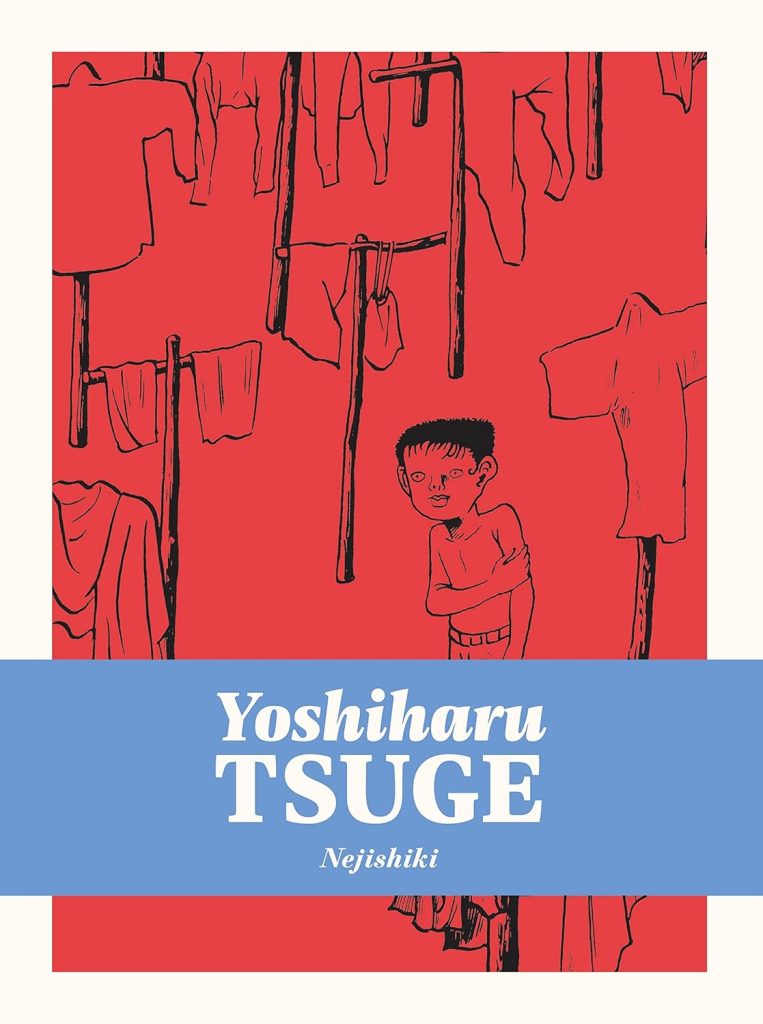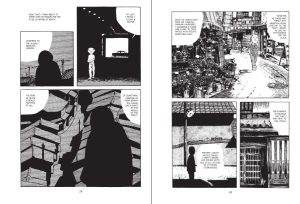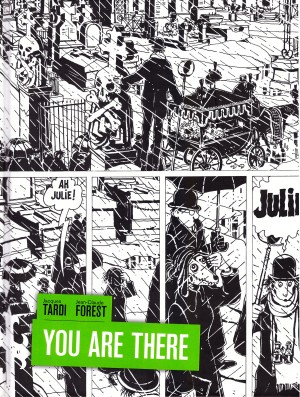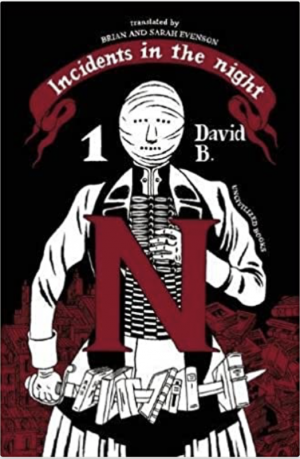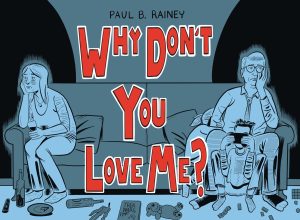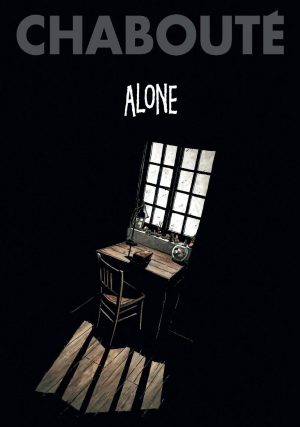Review by Frank Plowright
Drawn & Quarterly’s third volume of Yoshiharu Tsuge translations reaches the work that cemented his reputation in Japan when first published from 1968. Translator Ryan Holmberg’s afterword, contextualisation and appreciation (fully a quarter of the page count) notes Tsuge’s possibly spurious claim that the title story first came to him in a dream, and it certainly reflects the absurdism and frustration of dreams. A young man is stung by a poisonous jellyfish and his quest to find a doctor becomes a maddening, diversion-filled journey with clashing discordant images, eulogising of nature and an ultimately bonkers solution. There’s little logic and those inclined to do so can enjoy themselves interpreting meaning, with Holberg offering extensive background, but ‘Nejishiki’ is not a story any reader will forget in a hurry. Tsuge himself was dismissive about it and its reputation, so a perfect example of no-one being able to control the perception of their art once released.
‘Nejishiki’ is a visceral stab in the dark, but other content points to a more gradual progression from the material published in Red Flowers. Several continue the theme of a traveller’s discomforting experiences, the most memorable of a good selection being ‘Master of the Willow Inn’. Tsuge draws this far more realistically than normally, using black ink to lay a darkness over a sexually explicit tale of yearning, alienation and dissatisfaction. It’s ribald and evocative, but in common with other material here, there’s an uncomfortable judgemental undertone of the male protagonist body shaming women. That’s as nothing, though, compared with a shockingly casual rape sequence, even if presented as a dream. It’s counterpointed by Tsuge’s next story. ‘A Summer Memory’ could almost be seen as contrition, being a successful exploration of shame and guilt, yet lighter in tone than the remaining content.
Tsuge’s art in this collection is referred to as a progression by Holmberg, and it’s certainly more experimental than earlier work, but seems more a case of altering techniques to fit a mood. The sample page from ‘The Crab’ mixes a simple cartoon character with an intensely detailed background and foreground of shops and market stalls. An almost Disneyesque bird appears several pages later. Scenes of nudity are generally swathed in darkness and the protagonists run the scale from innocent and simple to fully rendered and complicated. ‘A Dream Stroll’ is sketchy and in ‘A Summer Memory’, the final story, the people are distinctly stylised.
Tsuge’s career path frequently features people unsure of themselves or their place in the world, and the existential concern is fully embraced as a constant theme in this collection, even in sequels to earlier work like ‘The Crab’. Traditional resolutions are now rarer, and behaviour less comprehensible beyond men getting away with what they think they can.
As a collection these stories aren’t as accessible as Red Flowers, and head deep into some disturbing areas, but there’s an artistic integrity about them that renders the better work compelling.
